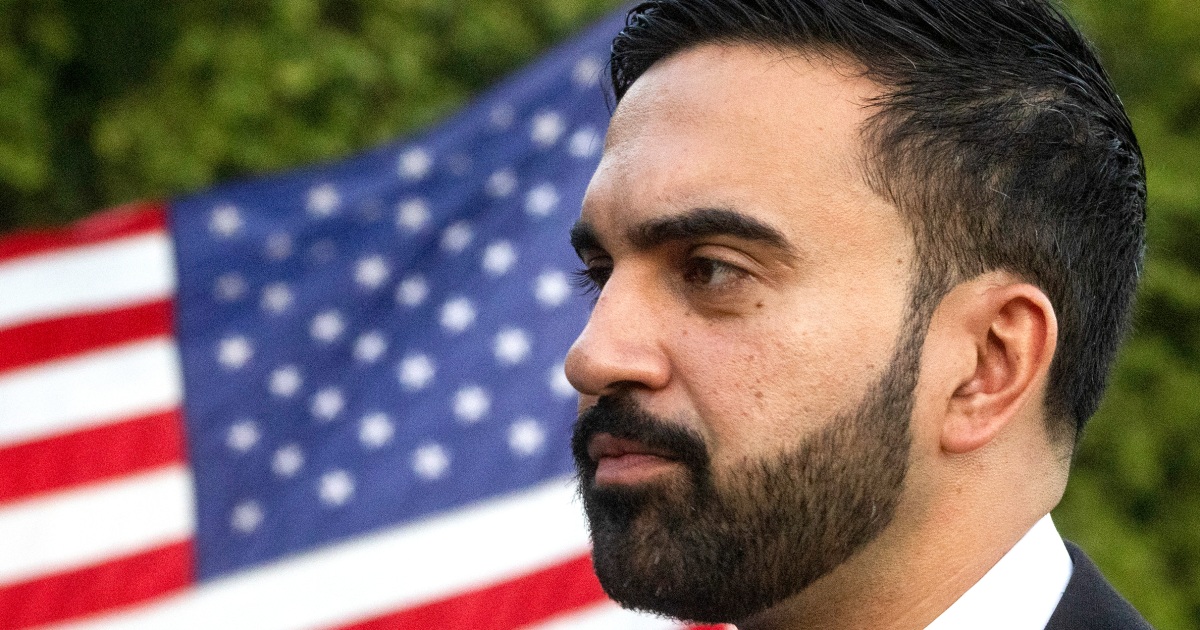The Trump administration is evaluating plans that would establish a “Domestic Civil Disturbance Quick Reaction Force” composed of hundreds of National Guard troops tasked with rapidly deploying into American cities facing protests or other unrest, according to internal Pentagon documents reviewed by The Washington Post.
The plan calls for 600 troops to be on standby at all times so they can deploy in as little as one hour, the documents say. They would be split into two groups of 300 and stationed at military bases in Alabama and Arizona, with purview of regions east and west of the Mississippi River, respectively.
Cost projections outlined in the documents indicate that such a mission, if the proposal is adopted, could stretch into the hundreds of millions of dollars should military aircraft and aircrews also be required to be ready around-the-clock. Troop transport via commercial airlines would be less expensive, the documents say.
The proposal, which has not been previously reported, represents another potential expansion of President Donald Trump’s willingness to employ the armed forces on American soil. It relies on a section of the U.S. Code that allows the commander in chief to circumvent limitations on the military’s use within the United States.
The documents, marked “predecisional,” are comprehensive and contain extensive discussion about the potential societal implications of establishing such a program. They were compiled by National Guard officials and bear time stamps as recent as late July and early August. Fiscal 2027 is the earliest this program could be created and funded through the Pentagon’s traditional budgetary process, the documents say, leaving unclear whether the initiative could begin sooner through an alternative funding source.
It is also unclear whether the proposal has been shared with Defense Secretary Pete Hegseth.
“The Department of Defense is a planning organization and routinely reviews how the department would respond to a variety of contingencies across the globe,” Kingsley Wilson, a Pentagon spokeswoman, said in a statement. “We will not discuss these plans through leaked documents, pre-decisional or otherwise.”
The National Guard Bureau did not respond to a request for comment.
While most National Guard commands have fast-response teams for use within their home states, the proposal under evaluation by the Trump administration would entail moving troops from one state to another.
The National Guard tested the concept ahead of the 2020 election, putting 600 troops on alert in Arizona and Alabama as the country braced for possible political violence. The test followed months of unrest in cities across the country, prompted by the police murder of George Floyd, that spurred National Guard deployments in numerous locations. Trump, then nearing the end of his first term, sought to employ active-duty combat troops while Defense Secretary Mark T. Esper and other Pentagon officials urged him to rely instead on the Guard, which is trained to address civil disturbances.
Trump has summoned the military for domestic purposes like few of his predecessors have. He did so most recently Monday, authorizing the mobilization of 800 D.C. National Guard troops to bolster enhanced law enforcement activity in Washington that he said is necessary to address violent crime. Data maintained by the D.C. police shows such incidents are in decline; the city’s mayor called the move “unsettling and unprecedented.”
Earlier this year, over the objections of California’s governor and other Democrats, Trump dispatched more than 5,000 National Guard members and active-duty Marines to the Los Angeles area under a rarely used authority permitting the military’s use for quelling insurrection. Administration officials said the mission was necessary to protect federal personnel and property amid protests denouncing Trump’s immigration policies. His critics called the deployment unnecessary and a gross overreach. Before long, many of the troops involved were doing unrelated support work, including a raid on a marijuana farm more than 100 miles away.
The Trump administration also has dispatched thousands of troops to the southern border in a dramatic show of force meant to discourage illegal migration.
National Guard troops can be mobilized for federal missions inside the United States under two main authorities. The first, Title 10, puts troops under the president’s direction, where they can support law enforcement activity but not perform arrests or investigations.
The other, Title 32, is a federal-state status where troops are controlled by their state governor but federally funded. It allows more latitude to participate in law enforcement missions. National Guard troops from other states arrived in D.C. under such circumstances during racial justice protests in 2020.
The proposal being evaluated now would allow the president to mobilize troops and put them on Title 32 orders in a state experiencing unrest. The documents detailing the plan acknowledge the potential for political friction should that state’s governor refuse to work with the Pentagon.
Some legal scholars expressed apprehension about the proposal.
The Trump administration is relying on a shaky legal theory that the president can act broadly to protect federal property and functions, said Joseph Nunn, an attorney at the Brennan Center for Justice who specializes in legal issues germane to the U.S. military’s domestic activities.
“You don’t want to normalize routine military participation in law enforcement,” he said. “You don’t want to normalize routine domestic deployment.”
The strategy is further complicated by the fact that National Guard members from one state cannot operate in another state without permission, Nunn said. He also warned that any quick-reaction force established for civil-unrest missions risks lowering the threshold for deploying National Guard troops into American cities.
“When you have this tool waiting at your fingertips, you’re going to want to use it,” Nunn said. “It actually makes it more likely that you’re going to see domestic deployments — because why else have a task force?”
The proposal represents a major departure in how the National Guard traditionally has been used, said Lindsay P. Cohn, an associate professor of national security affairs at the U.S. Naval War College. While it is not unusual for National Guard units to be deployed for domestic emergencies within their states, including for civil disturbances, this “is really strange because essentially nothing is happening,” she said.
“Crime is going down. We don’t have major protests or civil disturbances. There is no significant resistance from states” to federal immigration policies, she said. “There is very little evidence anything big is likely to happen soon,” said Cohn, who stressed she was speaking in her personal capacity and not reflecting her employer’s views.
Moreover, Cohn said, the proposal risks diverting National Guard resources that may be needed to respond to natural disasters or other emergencies.
The proposal envisions a rotation of service members from Army and Air Force National Guard units based in multiple states. Those include Alabama, Arizona, California, Illinois, Maryland, Michigan, Mississippi, Missouri, Nebraska, New Mexico, North Carolina, North Dakota, Pennsylvania, South Carolina and Tennessee, the documents say.
Carter Elliott, a spokesperson for Maryland Gov. Wes Moore (D), said governors and National Guard leaders are best suited to decide how to support law enforcement during emergencies. “There is a well-established procedure that exists to request additional assistance during times of need,” Elliott said, “and the Trump administration is blatantly and dangerously ignoring that precedent.”
One action memo contained in the documents, dated July 22, recommends that Army military police and Air Force security forces receive additional training for the mission. The document indicates it was prepared for Hegseth by Elbridge Colby, the Defense Department’s undersecretary for policy.
The 300 troops in each of the two headquarters locations would be outfitted with weapons and riot gear, the documents say. The first 100 would be ready to move within an hour, with the second and third waves ready within two and 12 hours’ notice, the documents note, or all immediately deployed when placed on high alert.
The quick-reaction teams would be on task for 90 days, the documents said, “to limit burnout.”
The documents also show robust internal discussions that, with unusual candor, detail the possible negative repercussions if the plan were enacted. For instance, such short-notice missions could “significantly impact volunteerism,” the documents say, which would adversely affect the military’s ability to retain personnel. Guard members, families and civilian employers “feel the significant impacts of short notice activations,” the documents said.
The documents highlight several other concerns, including:
• Reduced Availability for Other Missions: State-Level Readiness: States may have fewer Guard members available for local emergencies (e.g., wildfires, hurricanes).
• Strain on Personnel and Equipment: Frequent domestic deployments can lead to personnel fatigue (stress, burnout, employer conflicts) and accelerated wear and tear on equipment, particularly systems not designed for prolonged civil support missions.
• Training Disruptions: Erosion of Core Capabilities: Extensive domestic deployments can disrupt scheduled training, hinder skill maintenance and divert units from their primary military mission sets, ultimately impacting overall combat readiness.
• Budgetary and Logistical Strains: Sustained operations can stretch budgets, requiring emergency funding or impacting other planned activities.
• Public and Political Impact: National Guard support for DHS raises potential political sensitivities, questions regarding the appropriate civil-military balance and legal considerations related to their role as a nonpartisan force.
National Guard planning documents reviewed by The Post
Officials also have expressed some worry that deploying troops too quickly could make for a haphazard situation as state and local governments scramble to coordinate their arrival, the documents show.
One individual cited in the documents rejected the notion that military aviation should be the primary mode of transportation, emphasizing the significant burden of daily aircraft inspections and placing aircrews on constant standby. The solution, this official proposed, was to contract with Southwest Airlines or American Airlines through their Phoenix and Atlanta operations, the documents say.
“The support (hotels, meals, etc.) required will fall onto the general economy in large and thriving cities of the United States,” this official argued. Moreover, bypassing military aircraft would allow for deploying personnel to travel “in a more subdued status” that might avoid adding to tensions in their “destination city.”

-copy.jpeg?trim=0,0,0,0&width=1200&height=800&crop=1200:800)







